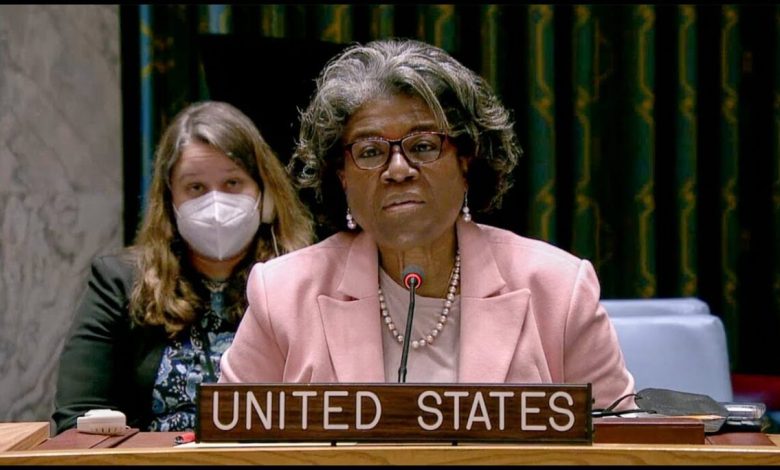Reports
The United States supports Africa gaining two permanent seats on the Security Council! Reuters: A step by Washington to mend relations with the African continent

Sudan Events – Agencies
U.S. Ambassador to the United Nations, Linda Thomas-Greenfield, is set to announce on Thursday, September 12, 2024, that the United States supports the creation of two permanent seats for African countries on the UN Security Council, in addition to a seat for small island developing states on a rotational basis.
According to Reuters, this move comes as the U.S. seeks to repair relations with Africa, where many feel discontent over Washington’s support for Israel’s war in Gaza, as well as its deepening ties with Pacific island nations to counter China’s influence in the region.
Thomas-Greenfield told Reuters that she hopes the announcement will “push this agenda forward in a way that allows us to achieve Security Council reform at some point in the future,” describing the move as part of U.S. President Joe Biden’s legacy.
In addition to calling for the creation of two seats for Africa and a rotational seat for small island developing states, Washington has long supported India, Japan, and Germany for permanent seats on the council.
Developing countries have long demanded permanent seats on the Security Council, the UN’s most powerful body, without success, despite years of discussions about reform. It remains unclear whether U.S. support will provide a boost to these demands.
Ahead of the U.S. announcement at the Council on Foreign Relations in New York on Thursday, Thomas-Greenfield clarified to Reuters that Washington does not support expanding veto power beyond the five countries that currently have it.
For his part, UN Secretary-General António Guterres acknowledged on Wednesday that there is a problem with the Security Council, stating, “We have a Security Council that fully aligns with the post-World War II situation. It has a legitimacy problem, an effectiveness problem, and it needs reform.”
The United Nations Security Council is responsible for maintaining international peace and security, with the authority to impose sanctions, enforce arms embargoes, and authorize the use of force.
The council originally had eleven members when the UN was founded in 1945, before the number was increased to fifteen in 1965, including ten elected members serving two-year terms, and five permanent members with veto power: Russia, China, France, the United States, and the United Kingdom.



